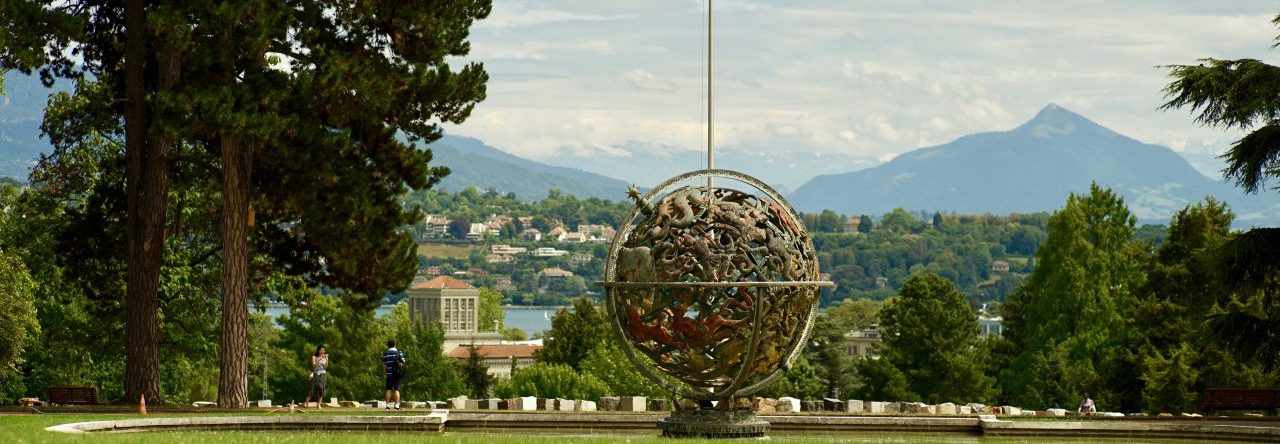Olivier de Frouville is a Professor of Public Law at the University of Paris 2 (Panthéon-Assas), Director of the Paris Human Rights Center (C.R.D.H.). From 2012 to 2020 he has been a member of the Institut Universitaire de France (I.U.F.), undertaking a program of research called « On a democratic theory of International Law ». At the University Paris 2, he teaches general international law, international human rights law and international criminal law. He also lectures of international human rights law at the Geneva Academy on humanitarian law and human rights.
His fields of research include general international law, the theory of international law, international human rights law, international humanitarian law and international criminal law. His research is characterized by a back-and-forth between theory and practice, from cosmopolitan legal theory to « cosmopolitan building sites », such as the status of civil society in international organisations or the creation of a United Nations Human Rights Court.
Parallel to his academic carreer, Olivier de Frouville has worked for more than twenty five years as a human rights expert in the United Nations. In June 2019, he was elected as a member of the UN Committee on Enforced Disappearances. If was reelected for a second 4-years mandate in June 2023 and was then elected as President of the Committee in September 2023. Previously he has been a member of the UN Human Rights Committee (2015-2018) and of the United Nations Working Group on Enforced or Involuntary Disappearances (2008-2014), of which he was the Chairperson-Rapporteur between April 2012 and Octobre 2013. He was also a member of the Coordination Committee of UN Special Procedures in the year 2013-2014. Between 2009 and 2020, he has been an expert appointed by France in the framework of the OSCE Human Dimension Moscow mechanism.
Between 2009 and 2015 he was a member of National Consultative Commission on Human Rights in France.
As special envoy of the International Federation of Human Rights (FIDH), Olivier de Frouville has represented this organisation at the negotiations of the Declaration on human rights defenders (1995-1998) and of the International Convention for the Protection of all Persons against Enforced Disappearances (2003-2006).
After his law studies at the University of Paris X-Nanterre, he presented his doctoral thesis in 2001 under the supervision of Professor Emmanuel Decaux on «Intangibility of human rights under international law. Human rights conventional regime and the law of treaty» (published in 2004, Paris, Pedone). This work was awarded the Human Rights Prize of the French Society for International Law, the Maurice Picard « Droit et sciences politiques » Award and the Georges Scelle Award of the Chancellerie des Universités de Paris.
Olivier de Frouville was Associate professor at the University of Paris X-Nanterre (2002-2006), and professor at the University of Montpellier (2006-2012)
He also lectured at the University of Paris II (Panthéon-Assas) in the “Human Rights and Humanitarian Law” Master’s programme (2002-2004) and was a guest professor in international criminal law at the University Centre for Humanitarian Law in Geneva (UCIHL, 2005-2006) and at the Geneva Academy for Humanitarian Law and Human Rights (ADH, 2008-2010, and from 2019).
From 2008 to 2011, he taught at the European College of Paris (LL.M. in European Law : Human Rights, Europe and its Democratic Society) and in 2011 he lectured at the Institute of Political Studies in Paris (the Paris School of International Affairs of Sciences Po Paris : The Global System of Human Rights Protection).
In 2013 he was invited at the European University Institute in Florence to teach the general course « From Human Rights to Cosmopolitanism ».
He also lectured classes of international human rights law at the International Institute of Public Administration of the French National School of Administration in 2000, 2002, 2012 and 2013, 2015, 2016, 2017.
From August 2011 till August 2012, Olivier de Frouville has been a «visiting fellow» at the Lauterpacht Center for International Law and at Clare Hall, a college of Cambridge University (United Kingdom). In 2013, he was elected into life membership of the College.
